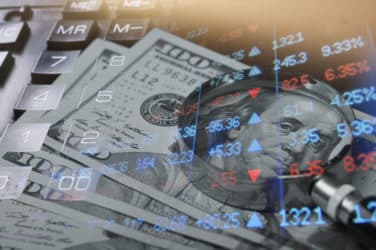
Requiring banks to document legitimate market-making and hedging transactions may cause some to exit business.
A new rule that provides prohibitions and restrictions on proprietary trading, known as the Volcker rule, could have far-reaching and unintended consequences, experts say.
The rule, issued by federal banking regulators and the SEC, prohibits banking entities from engaging in prop trading, i.e., in trading for their own account.
At the same time, the rule permits banks to engage in trading activities that support “client-oriented” financial services, which include underwriting, market making, and traditional asset management services.
That introduces a potential loophole through which prop trading could continue under the guise of legitimate market making or underwriting.
“In light of reported UBS trading losses allegedly caused by a rogue trader and disguised by fictitious trades, many will question the effectiveness of the Volcker rule banning U.S. banks from proprietary trading,” Ron D’Vari, CEO and co-founder of NewOak Capital Advisors, told Markets Media.
“Regulators and bank management are learning that risk management cannot be dictated by rule, regulation and policy alone, and that a well designed infrastructure for transparency of trading activities and positions is required for efficacy,” D’Vari said.
The proposed rule, whose comment period expires on Jan. 13, 2012, implements exemptions for underwriting and market making-related activities. For each of these permitted activities, the proposed rule provides a number of requirements that must be met in order for a banking entity to rely on the applicable exemption.
Exemptions are also included for risk-mitigation hedging, which would require banks to document, at the time the transaction is executed, the hedging rationale for the transaction, and for trading in U.S. government bonds and debt for government-sponsored entities.
In order to qualify for the exemptions, banks would be required to establish, maintain and enforce compliance programs intended to prevent employees from engaging in prohibited prop trading under the guise of market making, hedging or underwriting transactions.
The proposal seeks comment on whether the proposed compliance programs would incur additional costs, but the consensus is that it will.
“If these regulations are adopted in anything close to their proposed form, there will be large additional costs imposed on banks as market-makers that will not apply to market-makers not owned by banks,” said David Hilder, an analyst at Susquehanna Financial Group.
“We would expect that to draw capital to non-bank market-makers, and cause Goldman Sachs and Morgan Stanley to examine whether it makes sense for them to exit the banking system.”
Prohibiting U.S. banks from taking investment banking and underwriting risks would put US banks at an unfair disadvantage, said D’Vari.
To achieve internal transparency, a well designed system of checks and balances and separation of roles and responsibilities are necessary to avoid potential rogue trading.
“Customer-related trading loopholes can be controlled with the implementation of proper infrastructure, procedures and systems, provide management is committed to dedicating appropriate resources,” he said. “Investment banking and underwriting business risks can also be contained but requires a different set of procedures.”





